‘No, thank God.’ He sighed deeply; I could see he was still worried.
‘Have you much work on?’ I asked, to distract him.
‘More than I can handle.’ Roger was an excellent litigator, and since returning to London had built up a formidable reputation. ‘And I have to go and see a new pro bono client tonight, after we have been to the doctor’s.’
A voice calling Roger’s name made us turn. Dorothy was hurrying towards us, an amused expression on her face, carrying a package wrapped in oilskin. ‘You forgot this,’ she said.
Her husband reddened as he took the package. ‘His urine bottle for the physician,’ Dorothy explained.
Roger gave me a wry smile. ‘What would I do without her?’ he asked.
‘Forget your head, husband.’ Dorothy smiled again, then shivered, for she wore only an indoor dress.
‘Go back in, sweetheart,’ Roger said, ‘or you will have need of a doctor too.’
‘I will. Good luck, my love. Goodbye, Matthew. Come to supper next week.’ She turned and walked away, hugging herself against the cold.
‘I hate deceiving her,’ Roger said. ‘She still thinks I have a bad stomach. But I would not worry her.’
‘I know. Now come, and take care you do not drop that package.’
ROGER WAS PREOCCUPIED, saying little as we rode along Cheapside. The traders were packing up their stalls and we had to pick our way between the few late shoppers and the discarded wooden boxes thrown in the road. A pair of barefoot children in rags darted perilously close to the horses’ hooves, picking up rotten vegetables, the dregs of last year’s produce which the traders had thrown away. The beggars were crowded around the Conduit again, and one was waving a stick with a piece of rotten bacon on the end, shouting maniacally from the steps. ‘Help Tom o’Bedlam! Help a poor man out of his wits! See my broken heart here, on the end of this rod!’
‘He’s probably never been anywhere near the Bedlam,’ I said to Roger. ‘If all the beggars who say they’ve been there had truly been patients, the place would be the size of Westminster Hall.’
‘How is your client that has been put there?’
‘Grievous sick in his mind. It is harrowing to see. I wish to ask Guy to visit him, and I hope he can make sense of it, for I cannot.’
‘Dr Malton specializes in madness, then?’ Roger gave me an anxious look.
‘Not at all,’ I answered reassuringly. ‘But he has been practising medicine for nearly forty years and has seen every type of illness there is. And he is a good doctor, not like so many physicians who know of no remedies save bleeding and purging. ’Tis but your own fear that tells you you might have the falling sickness. Symptoms of falling over can have a hundred causes. And you have never had a ghost of a fit.’
‘I have seen those fits, though. I once had a client who suffered from them and he fell down in my office, gibbering and foaming with only the whites of his eyes showing.’ He shook his head. ‘It was a dreadful sight. And it came on this man late in life.’
‘You experience these falls and fix your mind on the most frightening thing you have seen. If I did not know you for a clever lawyer I would call you a noddle.’
He smiled. ‘Ay, perhaps.’
To take his mind from his worries I told him the story of the preacher who had stood at Newgate promising great rivers of blood. ‘Can a man who preaches such things possibly be a good man, a Christian man?’ I asked. ‘Even though the next minute he was proclaiming the joys of salvation.’
He shook his head. ‘We are in a mad and furious world, Matthew. Mundus furiosus. Each side railing against the other, preaching full of rage and hatred. The radicals foretelling the end of the world. To the conversion of some, and the confusion of many.’ He looked at me, smiling with great sadness. ‘Remember when we were young, how we read Erasmus on the foolishness of Indulgences granted by the church for money, the endless ceremonial and Latin Masses that stood between ordinary people and the understanding of Christ’s message?’
‘Ay. That reading group we had. Remember Juan Vives’ books, about how the Christian prince could end unemployment by sponsoring public works, building hospitals and schools for the poor. But we were young,’ I added bitterly. ‘And we dreamed.’
‘A Christian commonwealth living in gentle harmony.’ Roger sighed. ‘You realized it was all going rotten before I did.’
‘I worked for Thomas Cromwell.’
‘And I was always more radical than you.’ He turned to me. ‘Yet I still believe that a church and state no longer bound to the Pope can be made into something good and Christian, despite the corruption of our leaders, and all these new fanatics.’
I did not reply.
‘And you, Matthew?’ he asked. ‘What do you believe now? You never say.’
‘I no longer know, Roger,’ I said quietly. ‘But come, we turn down here. Let’s change the subject. The buildings are close together here, the voices echo, and we must be careful what we say in public these days.’
THE SUN WAS SETTING as we rode into the narrow alley in Bucklersbury where Guy lived and worked. It was full of apothecary’s shops, and Roger’s face became uneasy as he saw the stuffed alligators and other strange wonders displayed in the windows. As we dismounted and tied our horses to a rail, he looked relieved to see that Guy’s window contained only a selection of ornate apothecary’s jars.
‘Why does he practise in this godforsaken place if he is a physician?’ Roger asked, retrieving his sample from his horse’s pannier.
‘Guy was only admitted to the College of Physicians last year, after saving a rich alderman’s leg. Before that his dark skin and his being an ex-monk kept him out, despite his French medical degree. He could only practise as an apothecary.’
‘But why stay here now?’ Roger’s face wrinkled in distaste at the sight of a baby monkey in a jar of brine in the adjacent window.
‘He says he has grown used to living here.’
‘Among these monsters?’
‘They are just poor dead creatures.’ I smiled reassuringly. ‘Some apothecaries claim their powdered body parts can work wonders. Guy is not of that opinion.’
I knocked at his door. It was opened almost at once by a boy in an apprentice’s blue coat. Piers Hubberdyne was an apprentice apothecary whom Guy had taken on the year before. He was a tall, dark-haired lad in his late teens, with features of such unusual comeliness that he turned women’s heads in the streets. Guy said he was hard-working and conscientious, a rarity among London’s notoriously unruly apprentices. He bowed deeply to us.
‘Good evening, Master Shardlake. And Master Elliard?’
‘Yes.’
‘Is that your sample, sir? May I take it?’
Roger handed it over with relief, and Piers ushered us into the shop. ‘I will fetch Dr Malton,’ he said, and left us. I inhaled the sweet, musky scent of herbs that pervaded Guy’s consulting room. Roger looked up at the neatly labelled jars on the shelves. Little bunches of herbs were laid out on a table beside a mortar and pestle and a tiny goldsmith’s weighing balance. Above the table was a diagram of the four elements and the types of human nature to which they correspond: melancholic, phlegmatic, cheerful and choleric. Roger studied it.
‘Dorothy says I am a man of air, cheerful and light,’ he observed.
‘With a touch of the phlegmatic, surely. If your temperament was all air, you could not work as you do.’
‘And you, Matthew, were always melancholic. Your dark colouring and spare frame mark you out.’
‘I was not so spare before my fever eighteen months ago.’ I gave him a serious look. ‘I think that would have carried me off without Guy’s care. Do not worry, Roger, he will help you.’
Читать дальше
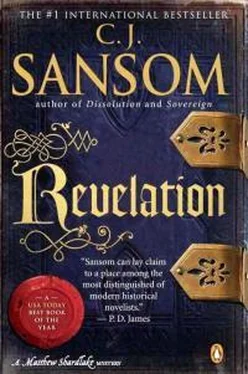
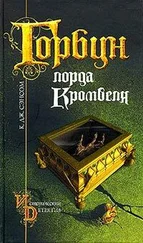

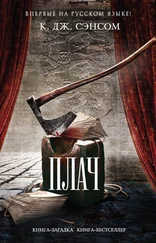


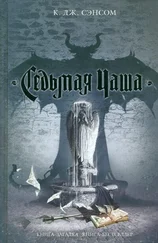
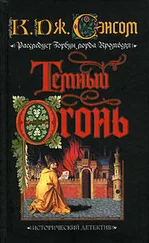
![К Сэнсом - Стенание [другой перевод]](/books/432043/k-sensom-stenanie-drugoj-perevod-thumb.webp)

